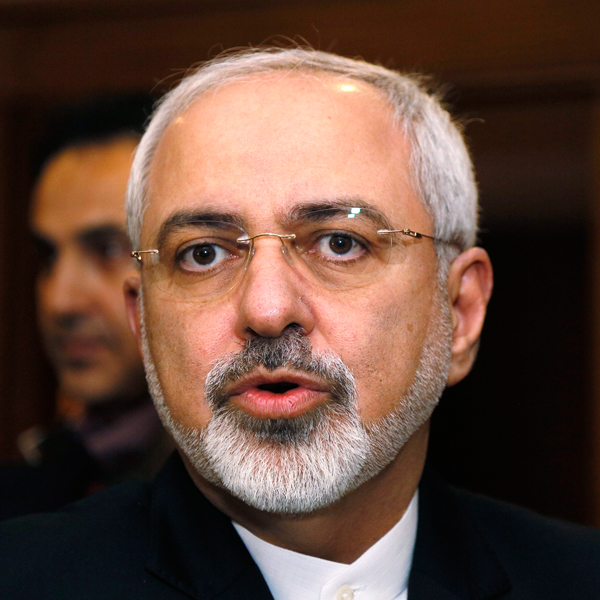"We believe that sanctities need to be respected," Zarif said. "We won't be able to engage in a serious dialogue if we start disrespecting each other's values."
 Iran's foreign minister said on Wednesday serious dialogue with the West would be easier if it respected Muslim sensitivitiesReuters
Iran's foreign minister said on Wednesday serious dialogue with the West would be easier if it respected Muslim sensitivitiesReuters
Iran's foreign minister said on Wednesday serious dialogue with the West would be easier if it respected Muslim sensitivities, ruffled by the latest Charlie Hebdo cartoons, as he held nuclear talks with the chief US diplomat.
Speaking to reporters before seeing US Secretary of State John Kerry, Mohammad Jawad Zarif said the meeting would help gauge whether both sides were ready to advance toward a deal to curb Iran's nuclear programme in exchange for sanctions relief.
"I think it's important. I think it will show the readiness of the two parties to move forward and to speed up the process," Zarif told reporters as he waited for Kerry, who arrived four minutes late for their meeting at a Geneva hotel.
The two men met for about five hours over the course of the day, including a 15-minute joint stroll through downtown Geneva during the afternoon. "We are working hard," Kerry told a journalist during the walkabout, which took them along the Rhone River flowing out of Lake Geneva, according to a US official.
Iran and six world powers have renewed their quest for an elusive nuclear deal - seen as crucial to reducing the risk of a wider Middle East war - after negotiators failed for the second time in November to meet a self-imposed deadline.
The Kerry-Zarif sessions precede the resumption of collective discussions involving all seven countries on January 18. The sought-after agreement, whose new deadline is June 30, would gradually lift tough financial and trade sanctions imposed on the Islamic Republic since 2006 in exchange for verifiable limits on its enrichment of uranium to ensure it cannot be put to developing nuclear weapons.
The Islamic Republic says it wants only civilian energy from enrichment, denying Western suspicions of a latent bomb agenda.
Asked if he hoped they could nail down an agreement by July 1, Zarif said: "That's why we are here. We'll see." Zarif also sought to explain why Iranians are dismayed by the cover of French satirical weekly Charlie Hebdo's January 14 edition, which features a cartoon of a tearful Prophet Mohammad with a sign "Je suis Charlie" (I am Charlie) below the headline: "Tout est pardonné" (All is forgiven).
Many Muslims regard depictions of Mohammad as blasphemous. Seventeen people died in violence in Paris last week that began with a January 7 attack by two Islamist gunmen on the offices of Charlie Hebdo, in which 12 people were killed including the journal's top cartoonists, and ended with a siege at a kosher supermarket on Jan. 9 in which four people died. A policewoman was also shot dead elsewhere on the street. All three gunmen
involved were killed in raids by French special forces.
involved were killed in raids by French special forces.
"We believe that sanctities need to be respected," Zarif said. "We won't be able to engage in a serious dialogue if we start disrespecting each other's values." Mohammad Nahavandian, top aide to Iranian President Hassan
Rouhani, struck an upbeat note before the talks: "The government has taken on a constructive attitude toward the nuclear issue and there is great hope to reach good results."
Rouhani, struck an upbeat note before the talks: "The government has taken on a constructive attitude toward the nuclear issue and there is great hope to reach good results."
Al Qaeda in Yemen claimed responsibility for the shooting attack on Charlie Hebdo, saying it was ordered by the Islamist militant group's leadership for insulting the Prophet Mohammad, according to a video posted on YouTube.

No comments :
Post a Comment